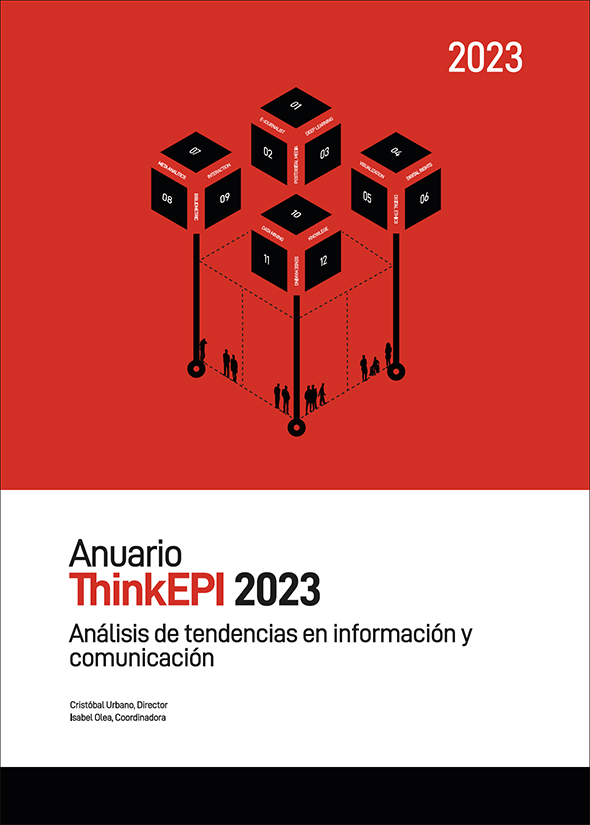Persistent identifiers: building the plane as we fly it
Pablo De-Castro
DOI:
https://doi.org/10.3145/thinkepi.2023.e17a24Keywords:
Persistent identifiers (PIDs), Landscape analysis, Case studies, Level of maturity, National PID strategiesAbstract
Persistent identifiers (PIDs) may be defined as permanent and globally unique references to any kind of digital or physical entity. The area of PIDs is currently experiencing a remarkable development. There is a whole range of emerging PIDs on top of the already consolidated ones such as digital object identifiers (DOIs) and ORCIDs for authors. Among the emerging PIDs, it is worth mentioning grant identifiers issued by research funders, identifiers for research equipment and facilities, organizational identifiers (Org IDs), and identifiers for physical geosamples (IGSN). Some reflections are shared here on the gradual evolution in the discipline and the advisability of having strategies in place for the adoption and use of this technology..
Downloads
References
Cervantes Producciones Digital (2022). Identificador digital cubano. https://cu-id.com
EOSC (2022). PID Policy and implementation Task Force (PID TF). https://www.eosc.eu/advisory-groups/pid-policy-implementation
EOSC (2023). EOSC Symposium 2023 (Madrid, 20-22 Sep 2023). https://symposium23.eoscfuture.eu
De Castro, Pablo (2023). "The outcomes of the Knowledge Exchange project on PIDs have now been published. The dissemination work is just starting". Scidecode science consulting, 3 February. https://scidecode.com/2023/02/03/the-outcomes-of-the-knowledge-exchange-project-on-pids-have-now-been-published-the-dissemination-work-is-just-starting
De-Castro, Pablo; Herb, Ulrich; Rothfritz, Laura; Schí¶pfel, Joachim (2023). Building the plane as we fly it: the promise of persistent identifiers. Knowledge Exchange. https://doi.org/10.5281/zenodo.7258286
FAIRCORE4EOSC (2023). "EOSC Core Components: Research Activity Identifier (RAiD)". FAIRCORE4EOSC. https://faircore4eosc.eu/eosc-core-components/research-activity-identifier-raid
Freya Project (2019). The PID Forum.. https://www.project-freya.eu/en/engagement/pid-forum
Matas, Lautaro; Segundo, Washington; Nóbrega, Tiago; Filho, J. Edilson S.; Mena-Chalco, Jesús (2023). "dARK: A decentralized blockchain implementation of ARK Persistent Identifiers". Open Repositories 2023 (OR2023), Stellenbosch, South Africa, 12-15 June 2023. https://doi.org/10.5281/zenodo.8091668
MoreBrains (2022). The PID-optimised research cycle. https://resources.morebrains.coop/pidcycle
Porter, Simon J. (2022). Figure 2 "Estimated ORCID adoption and engagement by country". In "Measuring research information citizenship across Orcid practice". Frontiers in research metrics and analytics, n. 7, 779097. https://www.frontiersin.org/files/Articles/779097/frma-07-779097-HTML/image_m/frma-07-779097-g002.jpg
RDA (2022). "Persistent identification of instruments WG". Research Data Alliance. https://www.rd-alliance.org/groups/persistent-identification-instruments-wg
Walker, Bridget (2023). "RDA national PID strategies guide and checklist". Research Data Alliance. https://rd-alliance.org/group/national-pid-strategies-wg/outcomes/rda-national-pid-strategies-guide-and-checklist
Downloads
Published
How to Cite
Dimensions


